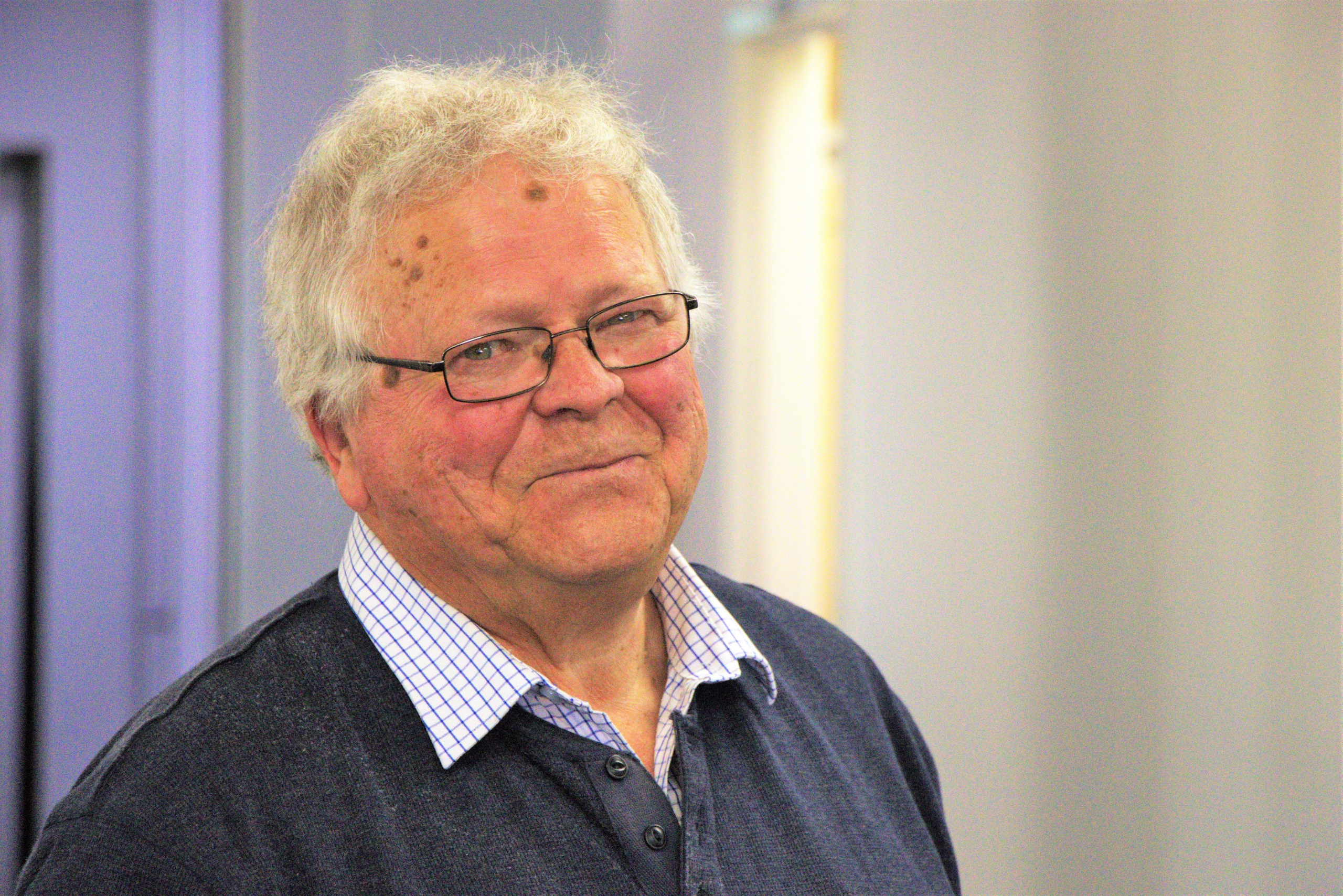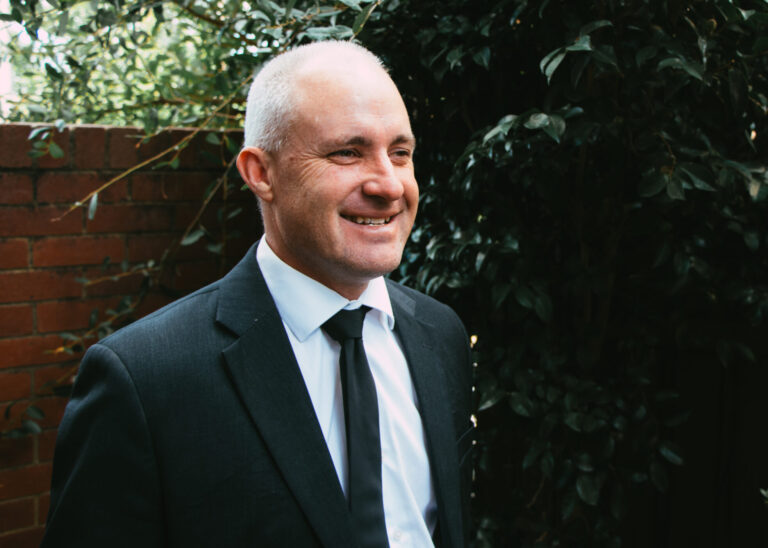The line between good and bad doesn’t run around the top of the prison wall – it runs right through the middle of each of our hearts. This is one of many things prison ministry has taught me.

When I first started to visit Victorian prisons regularly in 1979, one of the issues I needed to deal with was, ‘Are there any prisoners that I didn’t want to spend time with?’
If I met a person who was convicted of a crime when I knew the victim or their family, how would I react? How would others outside the prison react if they knew that I was spending time with some of these people on the inside?
A Leopard Can Change Its Spots
I am always aware that when I share at public gatherings about prison ministry there are likely to be victims of crime in the audience. I always point out that the bottom line in what we do is, “No more victims.” It’s not about condoning crime or criminal behaviour. It’s about stopping the cycle of crime.
One day when I had shared about the ministry of Prison Fellowship in Victoria, a lady came up to me and told me that it was useless trying to help or support those who were in prison because, “A leopard can’t change his spots.”
Ron Nikkel, the former President of Prison Fellowship International once said,
“When I say that I have never met a monster in prison, I am not saying that I haven’t met people who aren’t capable of and culpable for their evil deeds. What I am saying is that, while I have met offenders who are guilty of the vilest and most violent offences imaginable, and while their actions are repulsive, I can only meet them on the level ground of our common humanity. God’s gift of life to each of us. That does not mean those offenders are not responsible for their deeds or that they should not be punished. What I do mean is that as long as they are alive, they are a person whose life story is not finished, and because God gave them life and God loves them, their life story remains open to all of the possibilities of grace and redemption – transformation, reconciliation, and restoration.”
I am a witness to such stories of redemption and transformation, for among the “incorrigible” offenders who have done monstrous evil are many who have been completely transformed by the grace of God and the love of people who did not diminish them or write them off as monsters.
Some years ago I was on the news as I met a high-profile prisoner at the prison gate, and drove him to the district where he was to live. He had been convicted of murdering a child and had just been released at the end of his sentence.
When we walked out of the prison together the media cameras were recording. As we drove out of the prison car park a helicopter came down low and was filming our exit. The helicopter followed us for about 30 minutes, filming as we travelled, continually coming down very low beside us. The whole episode was the lead story on the evening news. The media company involved didn’t bother to hide my number plates, and some of our neighbours let me know that they were not happy with me helping a person like that.
But my friend in prison wrote a letter to me saying, “I was sitting in my cell watching the TV News – and saw you picking him up. Your work does not go unnoticed for those you help no matter the crime.”
Two Huge Lies
I have found this quote by Rick Warren to be true, “Our culture has accepted two huge lies, the first is that if you disagree with someone’s lifestyle, you must fear them or hate them. The second is that to love someone means you agree with everything they believe or do. Both are nonsense. You don’t have to compromise convictions to be compassionate.”
There is always the question, “Does this man deserve support and help?” Often the response is “No,” especially when you know the lives that have been destroyed by their choices, decisions, and actions.
But does accepting people, showing them respect, and treating them with humanity mean that I condone their actions and crime?
It can be hard to sit with the person who has had a different life from you, perhaps been rejected by family, who has poor health, maybe experienced great trauma, perhaps struggled with mental illness, who can’t hold down a job.
In their search for grace and peace, they may have turned to different types of addictions, to gambling, drugs or alcohol. They may be angry, have a short fuse, and may have lost any respect for themselves and so have no respect for other people. They may lash out at any person who offers care, especially the “do-gooders” who they expect to be self-righteous and judgemental.
It is sometimes a slow process to win friendship and build trust, especially for someone who has had their trust betrayed many times. But it is enormously rewarding to witness the light appear in the eyes of a person as they start to discover that they are cared for and respected and ultimately loved by God, and as they discover God’s goodness and grace.
We come to understand that there is no human being that is so far away, that God’s love cannot reach them.
Even in our brokenness and failures the fingerprints of a gracious creator are still on each of us. And because of that, we have the potential to be healed of the wounds that we carry, and our future can be different from our past.
Carl Jung, the great Swiss psychiatrist and psychoanalyst said, “But what if I should discover that the least among them all, the poorest of all the beggars, the most impudent of all the offenders, the very enemy himself – that these are within me, and that I myself stand in need of the alms of my own kindness – that I myself am the enemy who must be loved. What then?”
Grace always seems unfair until I find myself in need of it.
Everybody Needs a Friend
I remember not long after I started to visit prisons I was sitting in a with an elderly man who asked me what my role was in the prison. I told him that I was a visitor offering friendship to those who needed a friend. I remember his eyes filled up with tears and he said, “I have never had a friend.” Some inmates are rejected and isolated and treated badly by other prisoners as well as their families.
I remember being told by a lady who was the Program Manager at one of the main long-term prisons of the state that over 60 percent of the prisoners in that prison had no contact with anyone outside, no one on a phone list, no visitors, no Christmas, or birthday cards.
One man that I was chatting with, referred to his “waxer.” I didn’t know what he meant so I asked him. He explained that it was an old sailing term referring to a friend who was trusted, the sort of friend who would watch your back while in prison. He explained that in times past sailors on the big sailing ships worked in pairs when they were making or repairing the sails. One sailor would sew the canvas sail while the other one would rub wax onto the stitching to protect it from the weather. The person who did the heavy work of sewing the sails would swap with his mate when he needed a rest, and the person who had been waxing the stitching would then continue with the sewing. Many prisoners don’t have a “waxer.”
A good friendship makes the person understand that the “best self” is the “real self.” Sometimes I have sought to plant seeds of hope and meaning in their life. I have told many inmates, “After this is over, you could be the type of bloke who could make your little kids so proud of you.”
He didn’t get there by himself
When I was in my early teens, my dad taught me an important lesson. We were building a new fence line on our farm in Victoria. It was heavy work and dad had taken a break from the post hole digging. As I walked along the fenceline, I noticed a strange thing. There was a tortoise sitting on top of a fence post.
Its head was right out of the shell and the head and legs were waving around in a strange way. I called out to my dad and asked him to come and look at it. He came slowly back with a big smile on his face. He had seen the tortoise travelling across the paddock and had picked it up and placed it on the post to show me when I came along later.
I remember what he said to me. “When you see a tortoise on a fencepost, you know he didn’t get there by himself.”
He said that when you see a person who had become very wealthy, powerful, or successful, to always remember that he didn’t get there by himself. There are always a group of people who have contributed to their station, maybe family, community, or employees who have worked and made sacrifices to make it happen.
Over the years of life’s journey, I have come to see that there is another side of that wise saying. In spending time visiting in the prisons, I have met some people who have arrived at the bottom of society, with no wealth or power, now hated and feared by society because of the crimes that they have committed. They didn’t get there by themselves either.
I remember speaking with a chap who has spent most of his life in prison. He told me that for the past three generations his family had been totally involved in organised crime. His father and grandfather had both been killed in gang wars. He said, “I wonder what my life could have been if I was born into a different family.”
A senior person in Corrections Victoria once told me that over ninety-five percent of prisoners had been either victims of crime or were struggling with mental health issues. I have spent time with many men who, for various reasons were made wards of the state in their early years. Many experienced different types of abuse and violence.
We must always have more sympathy, empathy and offering of support for the victims of crime than for the person who has committed the crime. Yet, at the same time, we must see and connect with another’s humanity, no matter how damaged it seems. We cannot afford to dehumanise anyone.
Recently I read about an elderly pastor who was known to help men turn their lives around. From heading toward prison to becoming strong stable people who could help others with the issues of life.
He was asked how he was able to bring change to these men. He said, “I hold a crown over their heads and encourage them to grow into it.”
May the Good Lord help us as we seek to reflect accurately God’s love, forgiveness and grace to those who need it the most.
Kevin Maddock – Prison Fellowship Supporter and Volunteer






